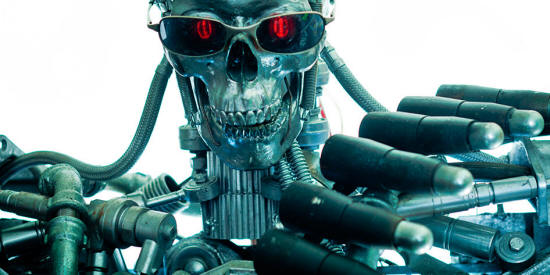|

by J.D. Heyes
October 12, 2015
from
NaturalNews Website
Spanish version

The Pentagon's secretive futuristic weapons and capabilities
research institution,
DARPA, is at it again, this time
pursuing the development of synthetic "living organisms" that are
bound to have a major impact on all aspects of humanity and the
surrounding environment.
The Washington Post
reports that public sector agencies
and private sector investors are putting millions into the
development of synthetic biology, which is leading to a rash of new
innovations that are having an impact on agriculture, energy and
health, among other sectors.
Citing the
latest "U.S. Trends in Synthetic Biology
Research Funding" report
from the Wilson Center's Synthetic Biology Project in the
nation's capital, The Washington Post noted that the U.S.
government has funded north of $820 million in research programs
focused on synthetic biological development programs between 2008
and 2014.
The Washington Post further reported:
In the public sector, the role of
innovation giant DARPA in funding synthetic biology projects has
exploded, eclipsing the role of other prominent U.S. government
agencies that fund synthetic biology programs, such as the
National Science Foundation (NSF), National Institutes of Health
(NIH), and the USDA.
In 2014 alone, DARPA funded $100
million in programs, more than three times the amount funded by
the NSF, marking a fast ramp-up from a level of zero in 2010.
Worrisome
military applications?
Because DARPA has been involved in the development of a number of
scientific firsts, it's worth keeping an eye on the defense research
agency regarding its work in the field of synthetic biology, the
paper noted.
Through initiatives such as DARPA's
Living Foundries program, the agency is attempting to create or
facilitate the creation of an actual manufacturing platform for
living organisms.
To this end, DARPA awarded the Broad
Institute Foundry, an MIT synthetic research lab, $32 million to
figure out how to design and then manufacture DNA.
"Living Foundries seeks to transform
biology into an engineering practice by developing the tools,
technologies, methodologies, and infrastructure to speed the
biological design-built-test-learn cycle and expand the
complexity of systems that can be engineered," says the
Living Foundries web page.
"The tools and infrastructure
developed as part of this program are expected to enable the
rapid and scalable development of transformative products and
systems that are currently too complex to access."
DARPA now represents nearly 60 percent
of all public funding in the field of synthetic biology, Todd
Kuiken, the senior program researcher at the Wilson Center who
authored the trends report, told the Post.
When all of the Department of Defense
spending is added in, he said, about two-thirds of all synthetic
biology funding from Uncle Sam is slanted toward the defense sector.
But to what end...?
That's the worrying part when you begin
to consider the implications and prospects of utilizing synthetic
organisms and the potential to perhaps create a biological
apocalypse in nations that are not friendly to the U.S.
As the Post notes, a number of Pentagon programs are classified and
hard-and-fast figures are difficult to get, so there really is no
way to know exactly what the military might be working on at this
moment in this field.
Society relies
on many products
Kuiken told the Post that a number of military programs appear to
focus on dual-use technologies such as bacteria that are able to get
rid of the barnacles attached to the bottom of U.S. Navy warships.
One Army program is aimed at developing
"biologically-inspired power generation," and that could have major
applications in the consumer sector as long as people are okay with
powering devices using biological, living organisms rather than
traditional batteries.
MIT biological engineering professor Christopher Voigt, who
started the institution's foundry, says the research is vital to the
development of a myriad of products and treatments.
"Society relies on many products
from the natural world that have intricate material and chemical
structures, from chemicals such as antibiotics to materials like
wood," Voigt said, according to a statement on the
MIT foundry's web site.
"We've been limited in our ability to program living cells to
redesign these products - for example, to program living cells
to create materials as intricate as wood or seashells - but with
new properties," he continued.
"Rather, products from synthetic
biology have been limited to small, simple organic molecules. I
want to change the scale of genetic engineering to access
anything biology can do."
Sources
|


